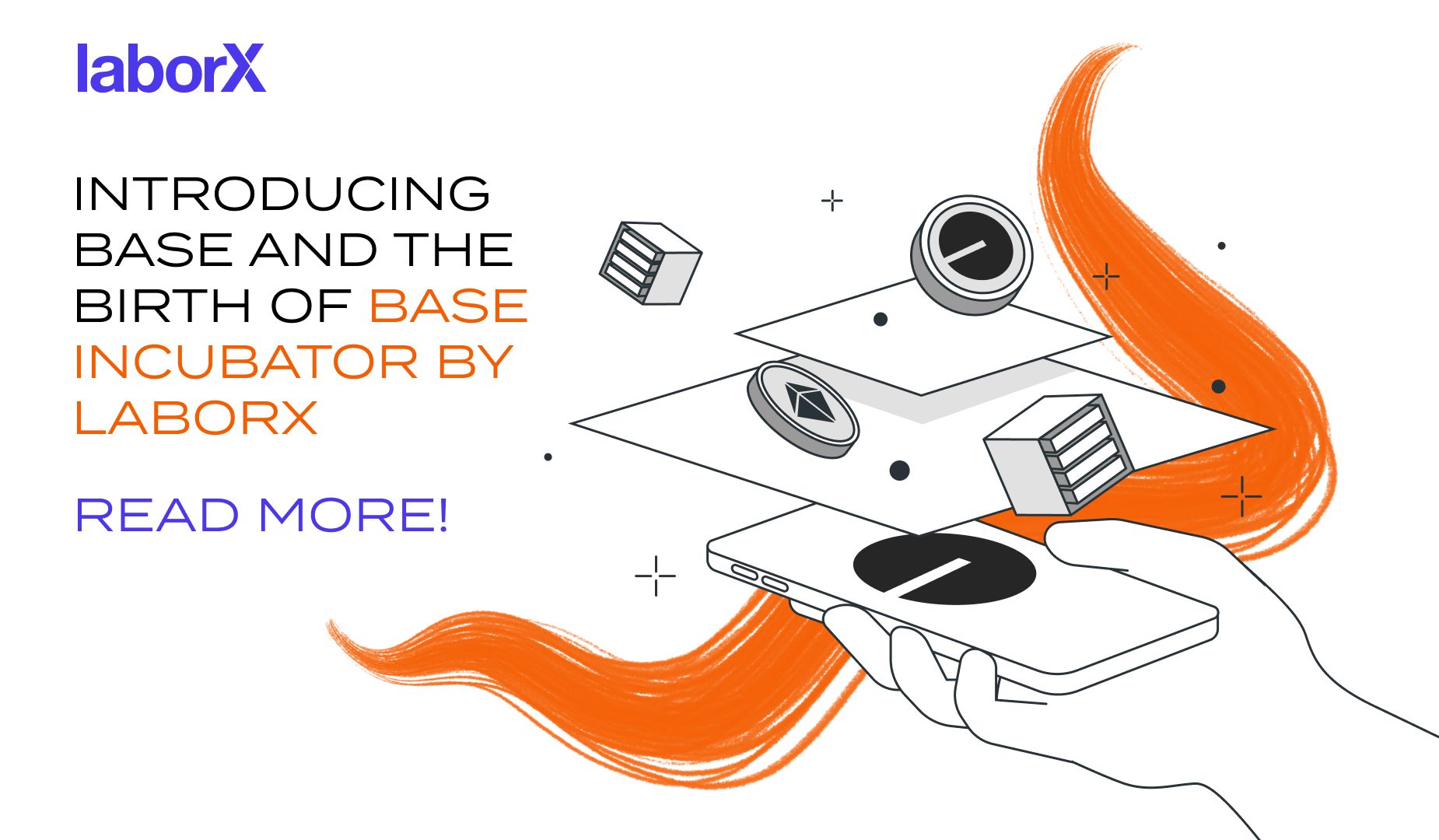❓ What skills do you need to apply for crypto jobs?
Coding, smart contracts, cryptography and security are all in demand. You could also look at communications, legal and compliance jobs, as well as financial analysis.

As blockchain technology gains traction, cryptocurrency careers are becoming an attractive option for developers and those with other relevant skill-sets. (updated 18.10.2022)
The rise of cryptocurrency and associated technologies has created a wave of new career opportunities, from highly specialist data scientist and Ethereum developer jobs to more entry-level blockchain jobs involving coding or supporting roles for fintech businesses.
Cryptocurrency is a fast-moving sector, with many roles open for forward-thinking professionals who either understand and have experience of this new tech, or who are prepared to undergo a steep learning curve to reap the rewards of being at the cutting edge of a new movement.
Technical roles are obviously in high demand, but if you are not a developer or do not have the scientific background that many vacancies require, there are still many opportunities to become involved. Both hard and soft skills are needed, and the rates of pay are typically above what you can expect in other sectors. Additionally, there are often other benefits, since the nature of the blockchain industry is that you may well be able to work remotely. Cryptocurrency jobs often pay in bitcoin or other cryptocurrencies, making them an attractive source of extra earnings if you understand the markets well enough.
This article was originally published in 2020, as blockchain and cryptocurrencies were on the verge of gaining widespread attention. It’s now over two years later, and the space has evolved a lot in that time. Looking at the end of 2022 and going into 2023, all of the information in this blog remains relevant, but there have been some big changes – including the rise of new sub-sectors of the blockchain industry that offer even more opportunities.
The coronavirus pandemic hasn’t gone away, but it has eased, and life is now going back to something like normal for most of us. However, some things that changed over those long months of lockdown are here to stay. Businesses and individuals have recognised the benefits of working from home, and although many people could go back to the office, they’re choosing not to.
The second major factor that is relevant is the economic uncertainty that raised its head at the onset of COVID. That has now morphed into a full-on global recession and cost-of-living crisis, as inflation eats away at salaries and households are finding it hard to make ends meet. Under these circumstances, more of us are looking for second jobs and gig work. Meanwhile, cryptocurrencies offer a new means of accessing the US dollar – the one currency that has reaped the benefits of global economic turmoil, with its status as a safe haven asset becoming more apparent by the week. Stablecoins including USDC, USDT, and Dai allow anyone to earn and park their savings in the global reserve currency.
Despite a nasty downturn in the crypto markets and across the global economy, blockchain skills remain in high demand. Although there are many uncertainties in the months ahead, the need for blockchain talent is not one of them.
Blockchain is an inherently technical field, so if you happen to possess relevant hard skills then you’ll likely be able to access some of the best cryptocurrency job opportunities. A formal education in these isn’t always necessary, since blockchain has only been around for a little more than a decade. Many of those who have secured top positions have done so because they took an interest at an early stage and honed their skills by experimenting and building software. Here are some of the key skills and domains you’ll need for a fulfilling career in cryptocurrency.
It’s an obvious starting point but for anything from an absolute entry level blockchain job upwards, you’re going to need to know how the technology works. There are many different elements to blockchain, and many different types of blockchain network. It’s more accurate to describe them as blockchain technologies, since distributed ledgers really bring together multiple different components. You’ll need to have a deep grasp of the principles of blockchain, the architecture of different systems, how they are used, and more. If you don’t already have that, start here.
There are lots of technical crypto jobs that will require coding skills, whether you’re working as a blockchain developer or carrying out blockchain data analysis, maintaining security processes, and so on. You’ll find some languages more useful than others. C++, Java and Scala are commonly used for blockchain protocols. It won’t hurt to have knowledge of other languages and frameworks like Python, Node.js or Rust, too. Alternatively, you might be involved in website or UX design – see below.
A special case for coding is smart contract development. This is a pretty complex area, and Ethereum developer jobs and other roles that require knowledge of smart contracts are well paid. Not only will you need to be familiar with the specific languages used to build dApps, like Solidity (Ethereum’s smart contract language, which is a bit like JavaScript), Haskell or custom languages designed specifically for creating applications on a given blockchain, but you’ll need to be proficient in debugging and highly security aware; these are financial application and mistakes can be extremely costly.
You may also have a role in carrying out third-party audits of other company’s smart contracts – again, a high-responsibility task. This area has become increasingly important since vulnerabilities in a number of well-known smart contracts were exploited, with the loss of tens of millions of dollars. If this is one of your skills, you can practically set your own pay. Businesses know their products are constantly under attack, and they’d prefer to work with the individuals who can find the loopholes, rather than against them.
An overall understanding of the security landscape for cryptocurrency is a valuable skill. Knowledge of cryptographic protocols, public key cryptography, elliptic curve signatures, cryptographic hashing and Merkle proofs are also useful, and will be required for many of the more senior as well as some entry level blockchain jobs. As a security architect, you’ll be responsible for establishing and maintaining the systems that will keep both your company and product secure, and prevent unwanted exploitation. This is an important job in any industry, but in blockchain it’s absolutely vital – a high-responsibility position that will demand a very high degree of competence.
Blockchain provides access to a huge amount of data, thanks to its transparent architecture. Understanding how to extract this, parse it, make sense of it and use it to equip businesses and other organisations is crucial – in fact, data scientists top the rankings for the best-paid cryptocurrency career vacancies. You’ll probably need a science, maths or engineering background, as well as coding skills, since you’ll be building tools to help you process the wealth of data the blockchain holds.
This is one of the top skills listed by LinkedIn for 2020, even outside of cryptocurrency careers. Since blockchain is another top skill for the year, it’s a powerful combination. You’ll need to be proficient in creating beautiful, intuitive interfaces that plug into the blockchain and allow users to access its functionality without needing to know or worry about what’s going on behind the scenes.
Top-notch frontend development skills are vital, including appropriate programming languages. You’ll most likely be working with APIs to connect to the blockchain and access its functionality through your UI, but of course it always helps to have a keen appreciation for exactly how the blockchain works, and how it differs from other centralised databases with which you might have worked in the past.
Similarly, there’s demand for web developers to create anything from company websites to trading portals and interfaces for blockchain services. You’ll need typical web development languages like HTML, CSS and JavaScript for frontend jobs, while Node.js, Go, Python, Scala and various other options are good if you’re looking to get into a cryptocurrency career that involves backend development.
Again, if your site connects to the blockchain it will probably be using APIs, but it makes sense for you to understand how they work and what’s going on behind the scenes – even if you don’t need the same kind of deep technical knowledge required of a blockchain developer.
This one comes in many forms, but there are crypto jobs that involve anything from trading the markets on a short-term basis to identifying the next unicorn tech company for hedge funds or VCs to allocate money into. You’ll very likely need appropriate licences and certification, since this area is subject to stricter regulation than other blockchain jobs. This is also an instance where formal education in the subject is probably necessary. The flipside of that is that if you have both the understanding of the crypto sector and the right qualifications and licences, you’ll be in demand.
While it’s not a technical position, there are many cryptocurrency jobs that seek to ensure compliance within the complex and evolving regulatory landscape for blockchain and digital currencies. Depending on the role, you may need a law degree and other qualifications or certification, like a licence to practice.
For other positions, that won’t be necessary – but you will need a broad knowledge of the regulation that applies to crypto. Moreover, you’ll need to keep up with it as it changes – which it does on a regular basis as different jurisdictions update their stance and clarify the rules. Because blockchain is an international technology, there’s a good chance you’ll need to know your way around the regulation not just for your jurisdiction, but for other key jurisdictions.
Without doing this, you may be unable to access certain markets, particularly the United States, where regulation is fairly strict. You will likely also need to understand how security requirements impact compliance, since there may be certain specific standards you need to meet for different countries (use cases in some jurisdictions, for example, require the use of particular cryptographic standards).
While any one of these skills will allow you to access anything from an entry-level blockchain job to one of the most senior and well-paid positions, this is not the kind of industry where you should be resting on your laurels. The more skills you can pick up, and the more flexible you are, the more value you can add to your company. You might be in line for sideways moves into another area of the business, or an unexpected promotion if you continue to learn and develop the skills that businesses desperately need.
Given that blockchain was the no. 1 hard skill listed by LinkedIn for 2020, it shouldn’t come as a surprise that there are still a vast range of different jobs available in the industry. The demand for skilled people means that rates of pay are typically anything from 10-25% higher than for similar jobs in other sectors. According to market news and analysis site CAGRValue, some of the top blockchain jobs and their required skills include:
It’s not just about hard skills, though. While developers and other technical positions are in demand, cryptocurrency careers involve far more than building software and systems. In particular, there are vacancies in marketing and communications, and community management. Both of these require soft skills – though, as ever, the more knowledge you have about how blockchain works, the better. Some of the top soft skills include:
This applies to both technical and non-technical roles. Blockchain is a fast-moving industry in which the rulebook is still being written. Those who can think outside the box will be extremely valuable, coming up with approaches and solutions that currently do not exist. As well as writing the software that underpins the next blockchain platforms, this includes coming up with new economic models that align interests between different stakeholders, new forms of community and engagement, and new ways of communicating with potential audiences.
While this doesn’t really belong in a list of soft skills, it’s worth mentioning as a special case of creativity. As the NFT and metaverse space has blown up, those with artistic and graphic design skills have become highly sought-after – in some cases, these artists have become the rock stars of the blockchain space. Good pixel art collections have become very popular, as has AI-generated artwork (it’s rarely AI software alone, with computer-created images often being edited by the artist), but every style is represented in the NFT scene. The metaverse is reliant on graphic designers and artists, since it offers immersive, life-like online interactions with other people and services, so again, there are many roles available in this new branch of the blockchain industry.
Another top soft skill, this is in-demand for cryptocurrency jobs – especially those with an all-important marketing component. Blockchain is a new and complex technology, and it can be hard for new audiences to understand it. There are roles for those who can explain it in simple and persuasive terms, from all the different benefits of decentralised models of operation to digital money and tokenised assets. A background in marketing and comms may be helpful, but don’t expect to be able to use exactly the same skills and processes in a blockchain job.
There’s a good chance you’ll be working in a small and tight-knit team, where the stakes are high and there will be demands on your time beyond the normal 9-5 office hours. Additionally, many cryptocurrency jobs require you to work remotely. This can present particular challenges for engaging as a team, since you’ll be working across cultures, timezones and languages. You’ll need to show flexibility and be able to collaborate effectively with your team despite the barriers to doing so. If you do happen to find yourself in an office, so much the better. But again, it’s unlikely to be the kind of large, monolithic organisation you may be used to. Many crypto jobs are in start-ups, where you’ll be working closely – and intensely – with some highly driven people.
A career in blockchain is not like working in other industries. You will emphatically need to continue to develop your skills and understanding of the technology, otherwise there’s a good chance you’ll be left behind and your current skill-set will become irrelevant. More seriously, in such a fast-moving sector, that could pose a risk to your employer. You’ll be expected to stay up-to-date and expand your knowledge all the time. Ideally, that will take place through natural curiosity and enthusiasm rather than a sense of duty – in other words, you’ll do it because you want to. Being a self-starter is almost mandatory if you want to work for crypto or in the blockchain sector.
Blockchain remains a highly in-demand skill set, and there is a wide range of opportunities available for those looking for a career in cryptocurrency. If you have the technical skills and are just starting out, there are plenty of entry-level blockchain jobs, from blockchain engineer roles and Ethereum developer jobs through to marketing and support positions. For those with more experience and expertise, you could quickly find yourself at the top end of the pay scale in a high-responsibility job in security, data analysis or blockchain development. Additionally, legal and compliance jobs are a hugely important part of the blockchain landscape as businesses seek to operate within ever-changing regulatory frameworks.
In addition to these technical roles, there are well-paid non-technical positions in marketing and communications. Soft skills are valuable in these jobs, though you will ideally also need an in-depth knowledge of how the blockchain works.
For all careers in cryptocurrency, it’s important to be a self-starter who can be trusted to work alone, to continue learning about the sector, to be a team player and to be committed to adding value to the business in whatever way you can – in and beyond your chosen role.
Coding, smart contracts, cryptography and security are all in demand. You could also look at communications, legal and compliance jobs, as well as financial analysis.
The best-paid opportunities are for data scientists, blockchain developers and blockchain engineers.
Entry-level blockchain jobs can be found by software developers (both frontend and backend developers), including web developers.
You should learn several languages, but Node.js, Python, Rust, C++, Java and Scala are all used. Solidity is required for programming Ethereum smart contracts.

Hotcoin’s HR shares her journey from traditional industries to the world of Web3 and crypto, highlighting key insights on thriving in this space.
Read
Discover how Web3 is reshaping HR practices with insights from a leading expert in the field.
Read
Discover Base's innovative L2 solution addressing scalability, security, and user experience challenges in crypto. Learn about Base Incubator by LaborX, fostering growth and innovation within the Base ecosystem.
Read